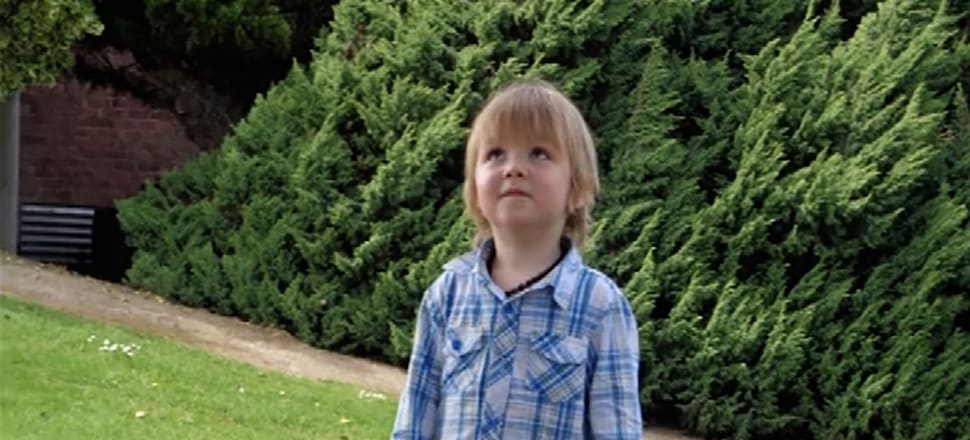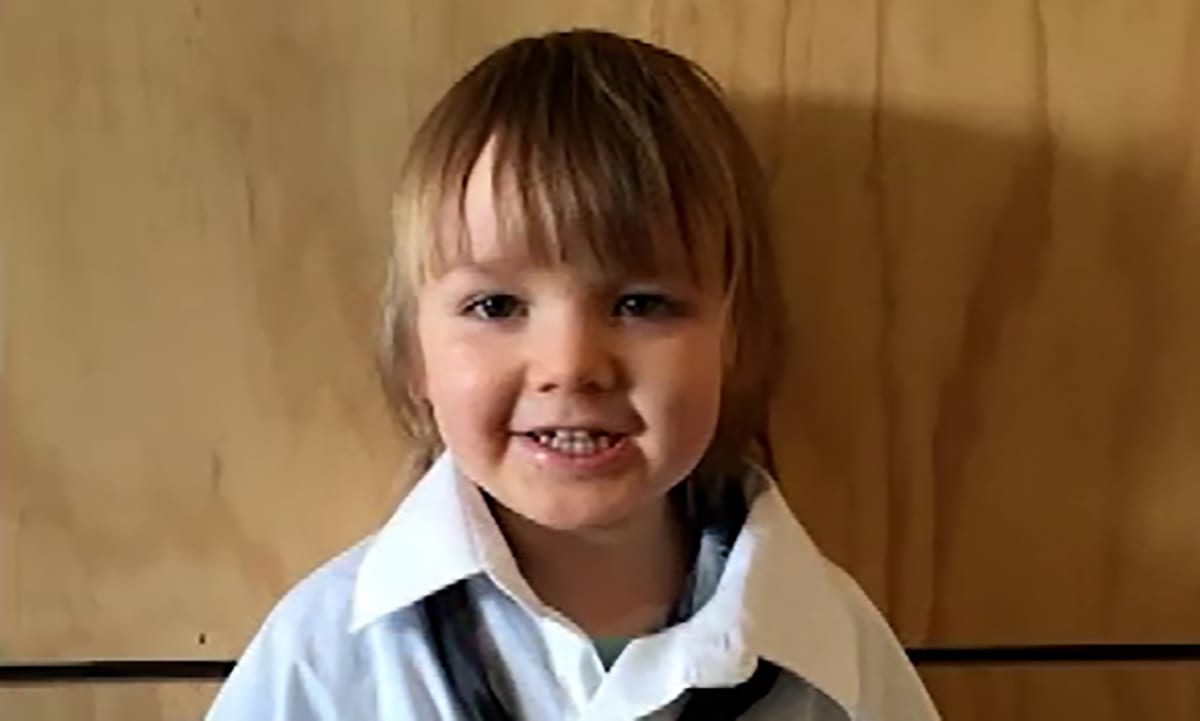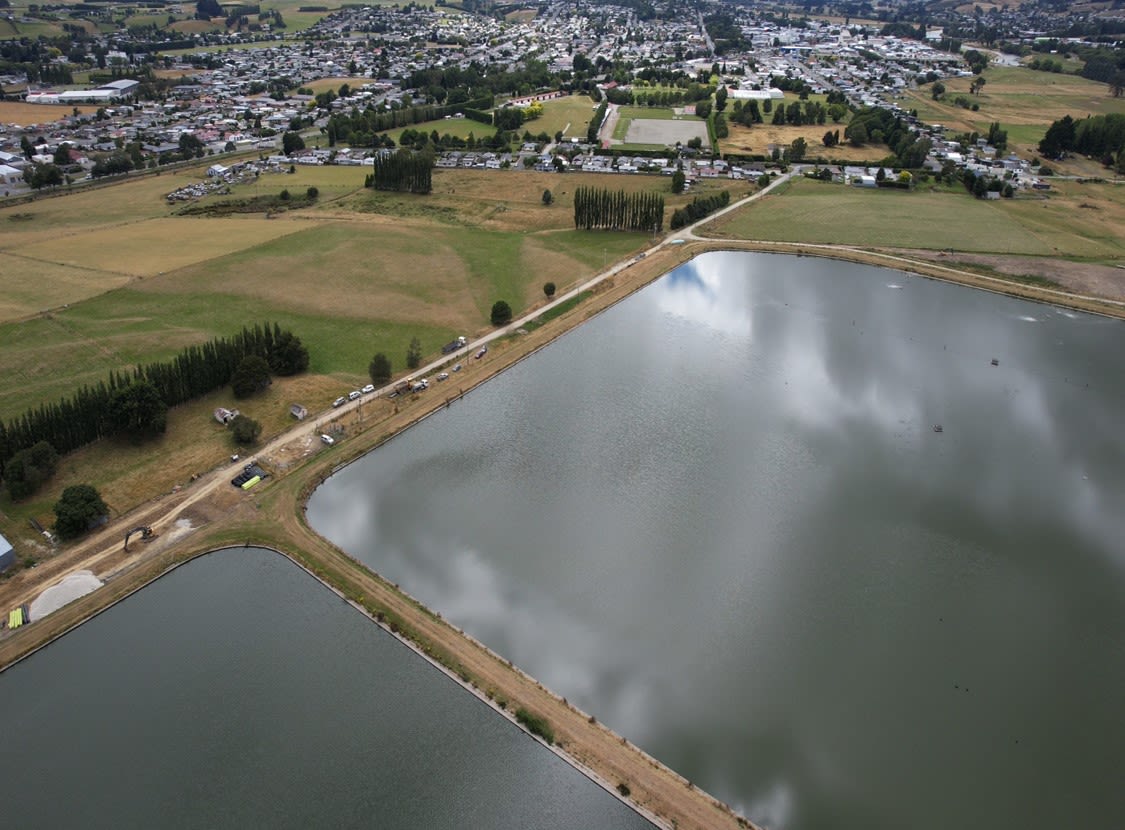
The formal court hearing is set down for three weeks in Invercargill – with the coroner himself intending to trace Lachie Jones' supposed steps to the oxidation pond where it was ruled he drowned. This comes following an extensive years-long Newsroom investigation into the case.
The coroner has ordered an inquest into the mysterious death of Gore three-year-old Lachie Jones.
Lachie was found floating face up in an oxidation pond on the outskirts of Gore by a police dog and its handler on a hot summer’s night in January 2019. His death was ruled an accidental drowning.
In a minute released to Newsroom from the coroner’s office, Coroner Alexander Ho says he is directing an inquest into the death of the toddler, beginning with a pre-inquest conference for October 19 at which he has invited comment on a number of issues.
These include: Whether the evidence establishes the Invercargill pathologist who carried out Lachie's post mortem was correct to conclude he died from drowning; what the circumstances were that led to him being found in the pond that night; and whether the evidence establishes or excludes the involvement of other individuals in his death.
Coroner Ho will also be looking at whether the circumstances of Lachie’s death included neglect.
The minute says that if the available evidence is insufficient to answer the above questions, would there be any further inquiries or steps that could be undertaken that could realistically yield “material evidence”, and would there be “any comments or recommendations that may reduce the chances of further deaths occurring in similar circumstances”.
The minute from Coroner Ho goes on to say that while the adequacy of the police investigations into Lachlan’s death is “not in itself a focus of the inquest” since they occurred after he died, “questions have been raised about the investigative steps taken or omitted by police” and as such “will to some extent require me to consider the criticisms of the investigation that have been made”.
The minute lists nine people who will be given ‘’interested party’’ status at the inquest, and a further 26 witnesses who will be called to give evidence. All names have been redacted.
The inquest itself has been set down for three weeks in Invercargill, and the coroner intends to visit the oxidation pond on January 26, 2024, a date chosen intentionally to reflect “the time of year that Lachlan was found”.

The announcement of an inquest means there will be a formal court hearing into the boy’s death.
Lachie’s father, Paul Jones, told Newsroom he is relieved at the announcement.
“It’s been a long time coming. It was the police’s initial finding and a reinvestigation which determined it was accidental drowning. The inquest will hopefully find out how Lachie got out there.”
In response to the news the coroner will be walking the walk his son supposedly took, Jones said “I don’t think the coroner will think he’s walked out there, that’s for sure.
“I want to thank everyone whose helped me get to this stage, it means a lot to me and it would to Lachie, and I couldn’t have done it without you.”
Jones made special mention of the long-running investigation by the Newsroom team.
This announcement comes days after police announced they would be investigating the case for a third time.
For four years Lachlan has been presumed drowned. As we reported first in October 2020, on a night in late January 2019, the little boy’s lifeless body was found face up in a council oxidation pond on the outskirts of the Southland town of Gore.
Police deemed Lachie’s death an accident and closed the case, concluding the pre-schooler had walked more than a kilometre from his mother’s house in his hi-viz vest, climbed over a fence and traipsed across long prickly grass in bare feet to the end of the second of two vast ponds before falling in and drowning.
Newsroom Investigates has covered this case for more than three years, including two video investigations and a new podcast series, the Boy in the Water, which revealed multiple criticisms of the police investigations.
Days after our first in-depth story into Lachie’s death was published, police reopened the case, headed by a Dunedin detective inspector. More than a year later, in November 2021, police closed that reinvestigation, releasing a short statement to say the matter had concluded and been referred back to the coroner.

Paul Jones was told by police at the time there wasn’t the evidence to hold anyone culpable in relation to Lachie’s death.
Part of our investigations involved sending samples of Lachie’s organ tissues and other relevant post mortem documentation to Dr Alexander Kolar, an independent expert forensic pathologist in the UK, whose findings raised serious concerns about Lachie’s post mortem and its diagnosis of death by drowning. Kolar’s report found there is not sufficient pathological evidence to say Lachie died from drowning.
Following the nine-part podcast investigation and numerous questions sent to police over the past three years, all of which were met with silence or redirection, police last week announced a review into their handling of the case, spearheaded by a detective superintendent who is one of police’s three national investigation leads. They also self-referred the matter to the Independent Police Conduct Authority.
Karen Smith, a retired American crime scene investigator, who has spent more than 400 hours investigating Lachie's death told Newsroom the police investigation was an “across the board system failure".
Smith submitted her forensic analysis to Coroner Ho. Newsroom understands Smith will likely be heading to New Zealand for the inquest.
Auckland barrister Simon Mount KC has been appointed as counsel to assist the inquest.
*This story was made with the help of the Public Interest Journalism Fund*








